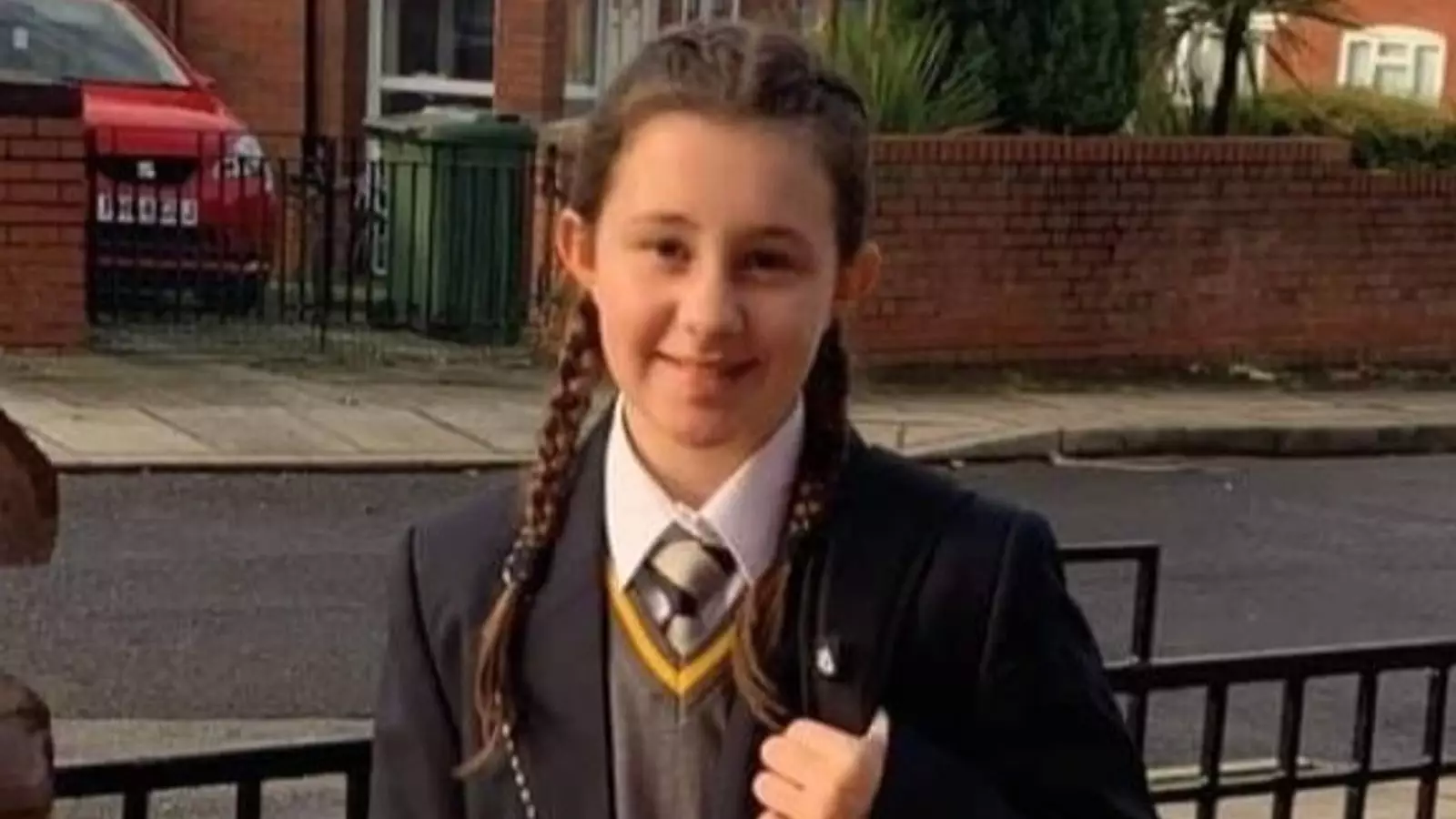The anguish that follows senseless violence is a weight heavy on the shoulders of a community, particularly in cases involving young lives and brutal losses. The recent public identification of Harry Gilbertson, the teenager responsible for the murder of 12-year-old Ava White, serves as a painful reminder of this truth. Now that he has turned 18, the restrictions that previously shielded his identity have been lifted. This scenario ignites a complex debate over privacy, accountability, and the rights of both the victim and the perpetrator—a topic that reveals an uncomfortable intersection of justice, societal expectations, and the struggles of grieving families.
Ava’s life was stolen from her in a moment of reckless violence—cut short at the tender age of 12, the very age when she should have been discovering her passions, making memories, and preparing for her future. In November 2021, during what should have been a festive occasion, a confrontation escalated, resulting in Ava receiving a fatal stab wound at the hands of Gilbertson, who was then only 14. The raw emotional intensity of such a loss cannot be understated. Leeann White, Ava’s mother, has voiced the collective frustration felt by those who knew and loved Ava. Her call for Gilbertson to be publicly named is not merely a desire for notoriety; it’s an assertion of the community’s right to know who has brought such grief upon them.
An Unacceptable Contrast of Rights
One of the most jarring aspects of this tragedy is the disparity of protections extended to families of victims versus those afforded to perpetrators, particularly minors. This detail struck a nerve with Leeann White, who described the emotional toll of having to explain Ava’s fate to her siblings, while Gilbertson’s family was seemingly shielded from the awareness of his grave actions. The judicial system’s decision to protect Gilbertson’s younger siblings raises critical questions: At what cost is this protection enforced, and why must families like Ava’s bear the brunt of such disparities? The emotional ramifications of these decisions ripple throughout the community, impacting how they perceive justice and accountability.
Gilbertson’s actions transformed him into a figure synonymous with tragedy in Liverpool, but as months turn to years in prison, his life continues with educational privileges—an affront to the memory of a child who will never enjoy such opportunities. The haunting thought expressed by Ms. White—“It should have been Ava sitting her GCSEs, not him”—speaks volumes about the injustice that lingers in the air like an unshakable shadow. The stark contrast between Ava’s lost potential and the future Gilbertson is still allowed to build becomes a flashpoint in the ongoing discussion about the repercussions of youth violence.
Taking Action Against Knife Crime
In the wake of this tragedy, Ms. White has channeled her sorrow into proactive measures by founding a foundation dedicated to the distribution of bleed control kits to schools and public venues. This initiative not only aims to save lives but also highlights the urgent need for communities to confront the rising tide of knife crime with real solutions rather than mere discussions. The establishment of these kits serves as a powerful testament to Ava’s legacy—a legacy that Ms. White is determined to honor, even amid her own unfathomable grief.
The statistics surrounding knife crime in the UK tell a story of a growing epidemic that demands immediate attention. Establishments must embrace the responsibility of fostering safe environments by providing training and resources, and Ms. White’s voice is a rallying cry for action. She insists, “The way knife crime is, it’s not going down, it’s getting worse.” Such urgent calls to action must be met with the unyielding support of society, lest Ava’s death be relegated to a mere statistic, another forgotten tragedy among many.
Living with Loss
Perhaps one of the most poignant aspects of this story is Leeann White’s struggle to find meaning in her new reality as a grieving mother. Living without her daughter has transformed her existence into a series of emotional hurdles. In her own words, “I no longer have good days.” This disheartening statement encapsulates the relentless and enduring pain those left behind endure. What Ms. White does find solace in, however, is her commitment to ensuring Ava’s story is not swallowed by the silence that often follows tragedy. Her determination to keep Ava’s memory alive is both inspiring and heartbreaking—a powerful reminder that each life taken too soon leaves an indelible mark on those still left to grieve.
Ava’s story, like many others marked by violence, demands action and reflection. The responsibilities that society bears in confronting and preventing such tragedies are monumental and must not be overlooked. As we navigate the complexities surrounding youth violence and grief, we must strive to create a future where fewer families experience the heartbreak that Leeann White faces every day—a task we all share in the hope for a safer community.

Leave a Reply